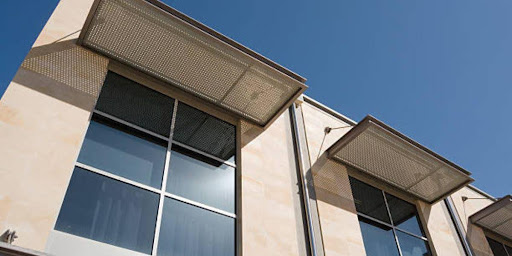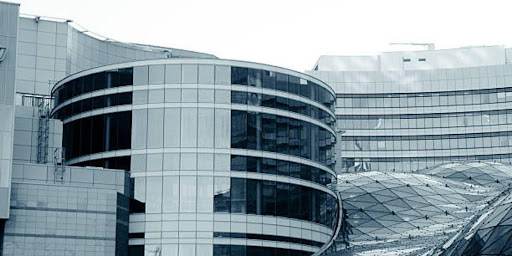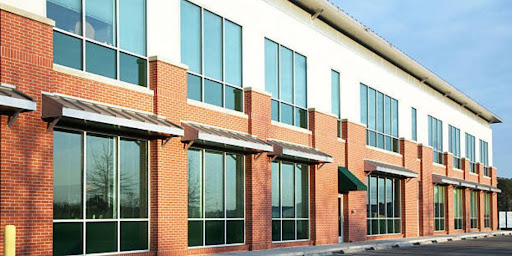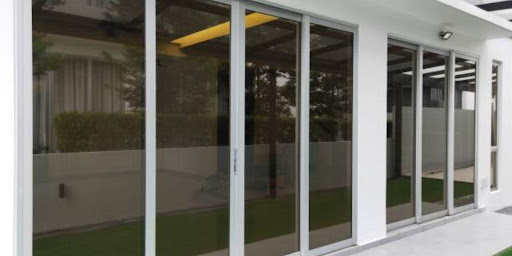Power Articles
Industry Elevating Content
Benefits of Window Tinting for Your Home

PowerArticles
Dec. 5, 2023
As home improvement companies seek innovative solutions to elevate the comfort, energy efficiency, and aesthetics of residential spaces, the benefits of window tinting emerge as a compelling proposition. Beyond its aesthetic appeal, window tinting serves as a multifaceted upgrade, offering significant advantages such as enhanced privacy, UV radiation reduction, and improved energy efficiency by mitigating heat gain. These benefits not only contribute to a more comfortable living environment but also align with the growing demand for sustainable and eco-friendly home solutions. This article dives into the myriad advantages of window tinting, providing home improvement professionals with valuable insights into a transformative and cost-effective option that can elevate the appeal and functionality of their clients’ homes.
Energy Efficiency
Efficient energy management is a priority for homeowners, and window tinting proves to be a pivotal solution. The reduction in energy costs is a compelling reason for home improvement companies to recommend this upgrade. Window tinting acts as a barrier, preventing heat gain in the summer and heat loss in the winter, thereby stabilizing indoor temperatures. This, in turn, alleviates the strain on HVAC systems, leading to prolonged equipment life and reduced maintenance costs. Beyond the economic benefits, window tinting aligns with environmental consciousness by diminishing the overall carbon footprint of a household.
UV Protection
The deleterious effects of ultraviolet (UV) rays extend beyond sunburns and skin damage; they also pose a significant threat to a home’s interior. Window tinting emerges as a safeguard against these harmful rays, preserving furniture and interiors from premature aging, fading, and deterioration. Home improvement companies can underscore the importance of UV protection for their clients, emphasizing the long-term value of maintaining the aesthetic appeal and structural integrity of a home.
Furthermore, the health benefits for occupants cannot be overlooked, as window tinting serves as an additional layer of defense against UV-related health issues, such as skin cancer and eye conditions. The application of window tinting also contributes to the longevity of flooring and upholstery, providing homeowners with a cost-effective strategy for preserving their investments in interior design.

Glare Reduction
In the pursuit of a comfortable and productive living environment, glare reduction stands out as a significant advantage of window tinting. Improved comfort and productivity are intrinsically linked to the ability to control sunlight entering a space. Home improvement companies can position window tinting as a versatile solution applicable to a range of settings, including home offices and entertainment spaces.
By minimizing glare on screens and reflective surfaces, window tinting creates an optimal visual environment for work and leisure. This adaptability enhances the appeal of window tinting for modern homeowners who value both functionality and aesthetics in their living spaces.
Privacy and Security:
In the realm of home improvement, privacy and security are top priorities for homeowners. Window tinting emerges as a dual-purpose solution that addresses both concerns seamlessly. The enhanced privacy achieved through window tinting is noteworthy, allowing residents to enjoy the comfort of their homes without compromising the influx of natural light.
This balance is crucial, as homeowners desire a sense of seclusion without creating a dark and enclosed atmosphere. Moreover, window tinting serves as a deterrent against potential intruders. The added layer of protection not only obstructs the view into the home but also reinforces the structural integrity of windows, making it a valuable investment for homeowners seeking comprehensive security solutions.

Aesthetic Appeal:
Beyond the practical aspects of window tinting, its contribution to the overall aesthetic appeal of a home is a compelling factor for home improvement companies to consider. Tinting options come in a variety of styles, allowing homeowners to tailor the look to their preferences. Whether it’s a subtle tint that complements existing architectural elements or a bold choice that adds a touch of modernity, the versatility of window tinting makes it a valuable tool for enhancing a home’s visual appeal. By seamlessly integrating with the existing design, window tinting becomes an understated yet impactful element of a well-crafted living space.
Regulatory Compliance
Navigating local regulations and restrictions is an integral aspect of any home improvement project, and window tinting is no exception. Home improvement companies must be well-versed in the overview of local regulations and restrictions pertaining to window tinting. This includes understanding permissible tint levels, specific rules for different types of windows, and any other relevant guidelines.
By adhering to these regulations, companies can ensure that their projects are in compliance with the law, avoiding potential legal issues and ensuring the longevity of the window tinting installations. Emphasizing the importance of working within legal parameters not only protects the interests of homeowners but also establishes the credibility of the home improvement company.

Conclusion
In conclusion, integrating window tinting into home improvement services proves to be a strategic and forward-thinking approach for companies in the industry. The myriad benefits discussed, from enhanced energy efficiency and UV protection to increased privacy and aesthetics, underscore the significant value that window tinting brings to homeowners. By incorporating this technology into their offerings, home improvement companies not only meet the growing demand for sustainable and cost-effective solutions but also position themselves as innovators in the field.
Published By
PowerArticles
Dec. 05 2023